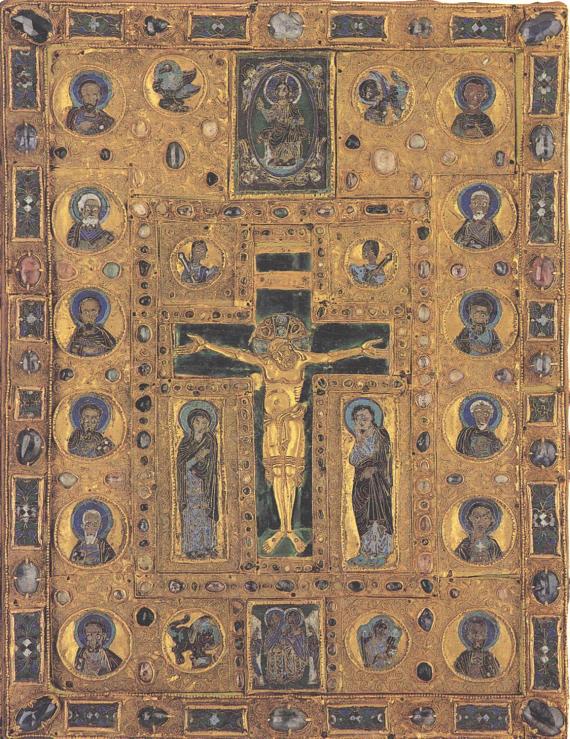Dictionary


Facsimile
The term facsimile derives from Latin "fac simile", which means "to make similar". A facsimile is an exact copy made photographically or by an offset process of a manuscript original or of a drawing or print. Size, colors, paper, typography and other qualities are supposed to be reproduced as faithfully as possible. Blank or cut areas must be reproduced as they are in the original. A facsimile imitates an original to the extent of reproducing its binding. A distinction is drawn between full facsimiles and part facsimiles. A full facsimile reproduces an original in all its colors whereas a part facsimile is limited to excerpts from the original. Since the originals of facsimiles are one-offs, the most compelling reason for making facsimiles is to preserve and protect the original from becoming worn through use. A facsimile also makes the contents of such an original available to many more readers. Facsimiles are often invaluable aids in the preservation of major manuscript or printed works. The codex "Hortus deliciarum" ["Garden of Delights"] of Herrad von Landsperg was destroyed in a fire in Strasbourg in 1870 but its contents have been preserved in a facsimile edition has preserved its contents.
The term facsimile derives from Latin "fac simile", which means "to make similar". A facsimile is an exact copy made photographically or by an offset process of a manuscript original or of a drawing or print. Size, colors, paper, typography and other qualities are supposed to be reproduced as faithfully as possible. Blank or cut areas must be reproduced as they are in the original. A facsimile imitates an original to the extent of reproducing its binding. A distinction is drawn between full facsimiles and part facsimiles. A full facsimile reproduces an original in all its colors whereas a part facsimile is limited to excerpts from the original. Since the originals of facsimiles are one-offs, the most compelling reason for making facsimiles is to preserve and protect the original from becoming worn through use. A facsimile also makes the contents of such an original available to many more readers. Facsimiles are often invaluable aids in the preservation of major manuscript or printed works. The codex "Hortus deliciarum" ["Garden of Delights"] of Herrad von Landsperg was destroyed in a fire in Strasbourg in 1870 but its contents have been preserved in a facsimile edition has preserved its contents.
Offers
Headquarters
Joseph-Wild-Str. 18
81829 Munich
Phone: +49 89 55 244-0
Fax: +49 89 55 244-177
info@kettererkunst.de
Louisa von Saucken / Undine Schleifer
Holstenwall 5
20355 Hamburg
Phone: +49 40 37 49 61-0
Fax: +49 40 37 49 61-66
infohamburg@kettererkunst.de
Dr. Simone Wiechers / Nane Schlage
Fasanenstr. 70
10719 Berlin
Phone: +49 30 88 67 53-63
Fax: +49 30 88 67 56-43
infoberlin@kettererkunst.de
Cordula Lichtenberg
Gertrudenstraße 24-28
50667 Cologne
Phone: +49 221 510 908-15
infokoeln@kettererkunst.de
Hessen
Rhineland-Palatinate
Miriam Heß
Phone: +49 62 21 58 80-038
Fax: +49 62 21 58 80-595
infoheidelberg@kettererkunst.de
We will inform you in time.




